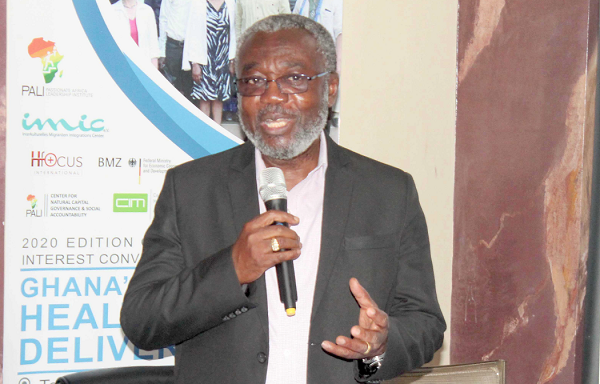Dr. Nsiah Asare, the Presidential Advisor on Health in Ghana, has expressed grave concerns regarding the unethical recruitment of immigrant healthcare workers, particularly in the context of developing nations like Ghana. He emphasized that the practices employed by developed countries in recruiting healthcare professionals—such as advertising in various media and leveraging digital communication—fail to account for the detrimental impact these strategies have on the healthcare systems in countries facing physician shortages. Dr. Asare specifically criticized developed nations for their lack of adherence to the World Health Organization’s (WHO) ethical recruitment guidelines, asserting that an ethical approach should prioritize improving the health infrastructure in countries facing medical worker shortages instead of exploiting their existing healthcare resources.
The frustration voiced by Dr. Asare centers on the mass migration of Ghanaian medical professionals, particularly nurses and doctors, who are drawn to more affluent countries after receiving a decade’s worth of training and experience domestically. He pointed out that this migration amounts to “stealing” from a country that already grapples with one of the lowest healthcare worker-to-population ratios worldwide. With about one-third of Ghanaian doctors seeking employment abroad post-graduation, the loss of these trained professionals aggravates an already critical situation regarding healthcare access and quality in Ghana, hindering the nation’s ability to provide adequate services to its citizens.
During a stakeholders’ meeting held in Koforidua as part of government town hall sessions, Dr. Asare elevated the dialogue by labeling the active recruitment of healthcare workers from African nations as a systemic issue that ought to be viewed as an international crime. He called upon developed countries to engage responsibly with the WHO’s code of practice, arguing that ethical recruitment should entail initiating support systems aimed at fortifying health service delivery in countries like Ghana. This perspective suggests a shift from mere attraction of healthcare professionals to a reciprocal relationship where the needs of both the recruitment countries and the providers are addressed.
In furthering his argument for ethical solutions, Dr. Asare proposed a collaborative approach wherein countries recruiting Ghanaian healthcare workers contribute towards the training and development of medical professionals within Ghana itself. This could involve providing internship opportunities and educational resources that benefit both the healthcare workforce of Ghana and the needs of the recruiting nations. By advocating for a partnership between Ghana’s health ministry and potential recruiting countries, he underscored the possibility of mitigating the negative ramifications of healthcare worker migration through shared responsibility.
Research data collected from previous years regarding the emigration of African-born healthcare workers, particularly to the United States and the United Kingdom, revealed that the number of professionals working abroad often correlates with the number of doctors per capita in their home countries. Thus, while emigration is a significant factor contributing to the dwindling healthcare staff in Africa, Dr. Asare emphasized that it should not be viewed in isolation as the sole cause for staffing shortages. He highlighted the necessity for international organizations to pursue meaningful and ethical strategies that address the complexities of healthcare migration rather than resorting to punitive measures against healthcare professionals seeking better opportunities abroad.
In conclusion, Dr. Asare’s remarks highlight urgent and critical aspects surrounding the ethical recruitment of healthcare workers from developing nations. He articulates a vision that underscores the need for developed countries to engage in responsible partnerships that support the nurturing of healthcare systems rather than depleting them. His insights provoke a broader dialogue about the implications of healthcare worker migration and present a call to action for all relevant stakeholders to work collaboratively towards honoring the WHO’s ethical guidelines while simultaneously fostering local healthcare education and access amidst the ongoing crisis in healthcare staffing in developing countries like Ghana.














